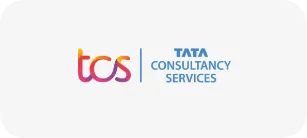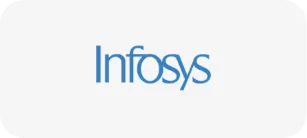Course Highlights
About the Program
Capgemini, a global leader in consulting, technology services, and digital transformation, is committed to enabling inclusive growth and sustainable development through its Corporate Social Responsibility (CSR) initiatives. Headquartered in Paris and operating in over 50 countries, Capgemini helps organizations embrace the power of technology to meet their business goals—with a strong focus on innovation, sustainability, and social impact.
SAP (Systems, Applications, and Products) is a renowned German multinational software company, best known for its ERP solutions and business applications that support organizations worldwide.
As part of its CSR mandate, Capgemini along with SAP is transforming lives through its flagship skilling initiatives focused on preparing underserved youth for in-demand roles across three critical domains that are Tech, Semi-Tech, and BFSI by empowering communities through digital inclusion, education, and employability-focused programs
In collaboration with Anirban Rural Welfare Society (ARWS) - a grassroots NGO dedicated to community development, Capgemini is scaling its impact across India. Established in 2000, ARWS is known for its people-centered approach, with a team of professionals including educators, doctors, social workers, and domain experts who guide marginalized youth toward education and economic independence through initiatives like Digital Academy and School of Coding.
Capgemini, in collaboration with SAP, sponsors the Certification in Software Developer Program through its knowledge partner, EduBridge. The course curriculum covers the complete software development lifecycle, including programming fundamentals in Java or Python, robust backend development, dynamic frontend interfaces, API integration using Swagger, cloud deployment, and DevOps practices. Participants will gain in-depth knowledge of software engineering principles, design patterns, testing techniques, and microservices architecture. Through hands-on experience with industry-standard tools such as Spring Boot, Django, React.js, Docker, Git, Jenkins, and cloud platforms like AWS, Azure, and GCP, learners will build real-world projects—preparing them for high-demand roles such as Software Developer, Full Stack Developer, or Cloud Application Developer.
In addition to technical training, the program also includes Guest lectures by industry experts provide valuable industry insights, while dedicated sessions on resume writing and mock interviews ensure learners are fully prepared for job placements.
This course will,
- Understand the role and responsibilities of a BASIS administrator.
- Gain hands-on expertise in managing the complete Order-to-Cash (O2C) cycle using SAP SD.
- Learn to configure and customize key components like sales orders, pricing, delivery, and billing
- Understand the integration of SAP SD with other core modules such as MM and FI.
- Develop the skills to analyze and optimize sales and distribution processes in real-time business scenarios.
- Prepare for SAP SD consultant roles with practical training aligned to SAP ECC and S/4HANA systems
We hope that you will gain the required knowledge from this program and demonstrate the skills learnt.
All the best!
Programming Languages and Tools Covered



















Certification Program in SAP SD course Minimum Eligibility



















Learn the basics of ERP and SAP, including its structure, benefits, and core modules. Understand how SAP helps businesses streamline operations through integrated systems.
Get introduced to RICEFW objects used for SAP customizations and understand the basics of ABAP programming in the SAP SD context.
Understand how SAP modules work together and integrate with external systems, enabling seamless data flow across business functions.
Learn the complete sales process in SAP SD—from customer inquiry to payment—along with how different SAP modules work together during the O2C cycle.
Understand the key organizational units in SAP SD and how they are structured, assigned, and impact the sales process from order to delivery.
Learn how core master data like customer and material records support smooth sales processes. Understand account groups, field selections, and data maintenance best practices.
Understand how sales documents drive the O2C cycle. Learn about sales order structure, item and schedule line categories, and how copy control streamlines document flow.
Learn how deliveries, picking, and Post Goods Issue (PGI) are managed in SAP SD. Understand delivery types, route determination, and collective processing for efficient logistics.
Understand the final step of the sales cycle—billing. Learn about billing types, document flow, pricing control, and how billing integrates with finance and accounting.
This module helps you learn how SAP calculates prices in sales and billing using condition techniques. It explains how to set up pricing rules and apply them to sales orders and invoices.
This module explains how to set up complex pricing in SAP, like discounts, promotions, and region-based prices. It helps you learn how to apply detailed pricing rules for different sales situations.
This module covers basic SAP SD features like free goods, partner determination, and key functions that support sales documents. It helps you understand how to manage offers, partners, and automate tasks in the sales process.
This module covers key SAP SD functions like partner roles, incompletion checks, text control, output types, and delivery scheduling. It helps you manage sales documents correctly and ensure smooth processing and communication.
This module explains special SAP SD sales processes like cash sales, rush orders, returns, and consignment. It helps you learn how to manage non-standard sales scenarios with the right document types and billing methods.
This module covers long-term sales agreements (contracts, scheduling agreements) and advanced sales processes like intercompany sales, third-party sales, and credit management. It helps manage complex sales and logistics scenarios effectively.
This module explains how SAP checks product availability during sales and delivery and how sales requirements are passed to planning for production or purchase. It helps ensure accurate stock commitment and smooth order processing.
This module introduces ITIL and service management basics, including service value, key roles, and how Agile, DevOps, and Lean support better service delivery. It helps understand how IT services create value for customers.
This module explains the four key areas that help deliver good IT services: People and Teams, Technology and Tools, Partners and Suppliers, and Work Processes. You’ll learn how these areas work together to make services better, avoid problems, and keep customers happy.
This module introduces the 7 guiding principles of ITIL 4 that help organizations make smart decisions and improve services. You’ll learn how to focus on customer value, use what you already have, work step-by-step, collaborate with others, keep things simple, and use automation wisely.
This module explains how services are created and improved using the Service Value Chain in ITIL 4. You’ll learn about the six key activities—Plan, Improve, Engage, Design & Transition, Obtain/Build, and Deliver & Support—and how they work together to turn ideas into valuable services for customers.
This module introduces key ITIL 4 practices that help manage and improve IT services. You’ll learn about Incident Management, Problem Management, Service Request Management, and Change Enablement—what they are, how they work, and how they help deliver smooth and reliable services.
This module explains what a sprint is and how it helps deliver SAP SD features in small, manageable phases. You’ll learn about sprint goals, timelines, key roles, and how teams plan, test, and review their work to achieve project milestones smoothly and efficiently.
This module explains what a sprint backlog is and how it helps teams plan and track their work during a sprint. You’ll learn how to write user stories, break them into tasks, estimate effort, and use the Definition of Done to ensure quality. It also covers how to manage task dependencies in SAP SD projects.
This module covers the basics of sprint planning in Agile projects. You’ll learn how to set clear goals, select user stories, assign tasks, estimate effort, and identify risks. It also explains how proper planning and resource allocation help teams deliver SAP SD features smoothly and on time.
This module explains how SAP SD sprint tasks are carried out during the execution phase. You’ll learn how teams use daily stand-ups, burndown charts, and task tracking tools to stay on target. It also covers typical configuration and testing activities done using SAP and project tools.
This module covers how SAP SD setups are tested to make sure they work as expected. You’ll learn about unit testing, functional testing, and integration testing, along with how defects are tracked and fixed. It helps ensure system quality before going live.
This module explains how to review and present completed SAP SD work at the end of a sprint. You’ll learn how to demo configurations, gather feedback from stakeholders, check if goals were met, and get formal sign-off to confirm readiness for the next steps.
This module explains how teams reflect at the end of a sprint to discuss what went well, what can improve, and what actions to take next time. You’ll learn about different formats, common discussion points, and how retrospectives drive continuous improvement in SAP SD projects.
This module explains how to measure the success of a sprint using key metrics like velocity, burn rate, defect density, effort variance, and task completion ratio. You’ll learn how these numbers help teams track progress, improve planning, and deliver better results in SAP SD projects.
Enrollment Benefits

- Get access to 300+ hours of hands-on training from experienced industry trainers who bring real-world knowledge into every session.
- Complement your classroom sessions with 100+ hours of guided self-study, interactive quizzes, and coding challenges that reinforce your understanding.
- Reinforce learning by working through industry-simulated coding labs and case studies under expert guidance.
- Receive individual, constructive feedback on your submissions to improve code efficiency, logic, and industry best practices.
- Get expert-led interview preparation, participate in mock interviews, and gain free access to a professional resume builder to polish your job application.
- Master both frontend and backend technologies. Build and deploy fully functional web applications.
- Work with Spring Boot 3.0, Spring Core, Spring MVC, Spring Data JPA, and RESTful web services.
- JavaScript, TypeScript, and Angular /React for dynamic UI and SPAs
- Git and GitHub for source code management and collaborative development.

- Web Developer
- Mobile App Developer
- Cloud & DevOps Engineer
- Software Engineer
- Software Analyst
- Systems Engineer
- Programmer
- Developer
- Program Analyst
- Backend Developer
Uncover the top skills taught in our comprehensive course
We are so proud of our learners who work in some
of the top companies in India.



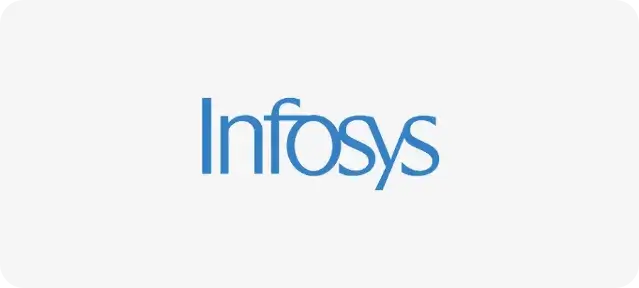

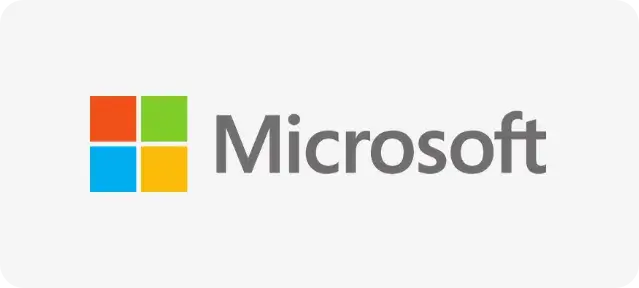
Frequently Asked Questions
The demand for Full Stack Java Developers is extremely high. Companies hiring Java professionals are receiving ample benefits as they can create applications from scratch and remain proactive during the entire development journey. Their demand has significantly increased compared to separate Front-end and Back-end Developers. The role was an In-Demand Tech Job in 2019 will continue to be sought after for a long time to come as over 90% of the Fortune 500 companies still rely on Java for their development projects.
Yes, the Java Full Stack Development course includes a range of assignments and projects designed to reinforce your learning and practical skills. You'll work on hands-on assignments after every module to apply the concepts you've learned and build a strong foundation. One of the highlights is a comprehensive project where you'll create a web application similar to those developed by top brands. This project will encompass frontend and backend development using Java technologies, HTML5, CSS, Bootstrap, modern JavaScript (ES6 and TypeScript), servlets, JSP, JPA with Hibernate, and RESTful Web Services with Spring. You'll also integrate tools like Docker for deployment and implement design patterns for efficient development. Furthermore, regular assessments after each module will ensure that you grasp the material effectively and provide an opportunity to track your progress. These assessments will contribute to a deeper understanding of the topics and your readiness to tackle real-world challenges.
After completing the course, you will acquire versatile skill set that qualifies you for various job roles in web development field. You can acquire skills like python Programming, Web Development Basics, Database Management, Django Framework, Rest API Development, Version control using GitHub,Testing and debugging, best practices to secure web applications and project management. Yes. There are assignments after every major concept along with few lab activities that are done during the session. The assignment problems must be done as a coding practice after the session. This course also includes two mini projects - one which deals with the front end and another with python database connectivity. Towards the end, you'll be working on a capstone project which is a real time full stack web application that will help you to get hands-on experience.
Unfortunately, we do not provide refunds. However, you can speak to our support team and discuss your issues.
Yes. The course offers real time Coding problems and projects that will help the learners get a better understanding and hands-on-experience of the programming language.
Assessments are visible to you in the 'My Courses' section. Your Trainer will activate this post completion of the sessions. Once the Assessments are activated, you will get a notification on your 'My Calendar' option about the same.
To become a Full Stack Java Developer with no prior experience, one needs to gain proficiency in programming languages like JavaScript, Java, PHP, Ruby, and Python. Additionally, Full Stack Java Developers must gain a thorough understanding of relational Databases and Database Storage, and a basic knowledge of UI/UX Prototyping and Designing tools.
You can connect with the Support Team in the following ways : - By raising a Ticket from your Login Page via clicking the Help option. - Write to us on wecare@edubridgeindia.com, or call us on 18001201193. - Connect via chat or WhatsApp on our website.
Click on "Sign Up" at the top right corner of the homepage Enter the details asked there. Click on "Create My Account"
If you have any doubts or difficulties in learning, you can directly reach out to our live support, WeCare, available during daytime hours. You can also post your questions on ‘Webex Space,’ where our experts will promptly address them. Additionally, doubt-clearing sessions will be conducted on weekends (Saturdays) by Subject Matter Experts (SMEs). For immediate assistance, you can also reach out to trainers during the live sessions.
If you can't Login to your EduBridge Account: - Double-check your email address/ registered Mobile Number for any misspellings or incorrect characters. It must match exactly what you typed in when you created your Account. - If that doesn't work, try resetting your password.
- Click on "Go to My Account" - Click on "Go to My Profile" - You will be able to review your Profile.
No prior knowledge about Java is required. Everything is taught from scratch in this course.
We follow a blended training approach here at EduBridge. There will be a mix of live trainer-led sessions, some videos with voiceovers and pre-recorded videos that are learn-by-yourself mode.
The key features of our course include trainer-led sessions for complex topics and queries, interactive content, videos, and quizzes, case studies and projects, resume building and LinkedIn profile creation, guest lectures from industry experts, oral assessments and project presentations, weekend doubt-clearing sessions with SMEs, and comprehensive placement assistance and counseling.
In order to enroll for and take an IT Course, you need to have the following system requirements: Platform - Windows 8 or higher with the latest updates installed - RAM: 4GB or more - Video: Graphics Output Capability - Sound: Sound Output Capability - Intel i3 Processor or higher or similar output Processor from AMD.
















